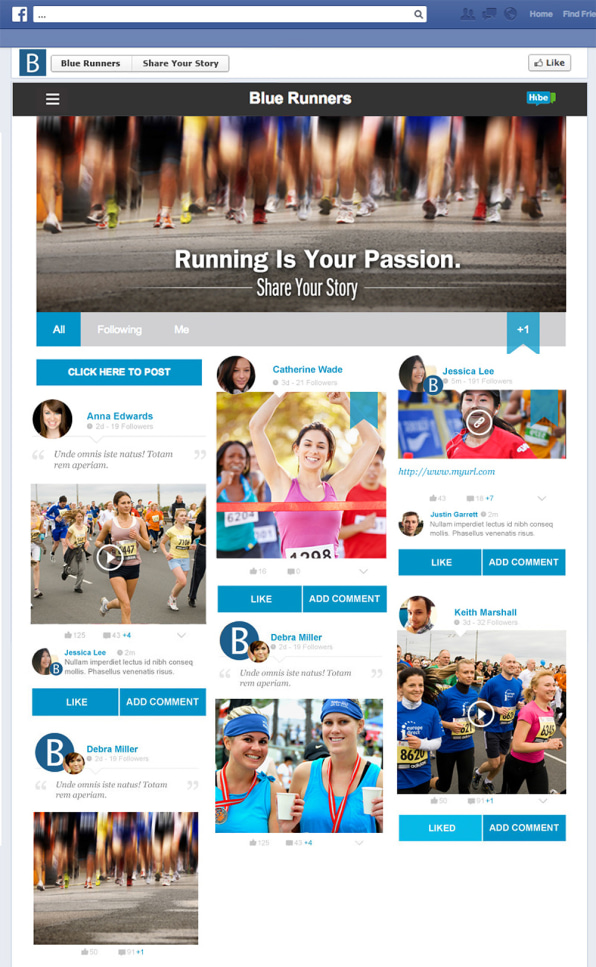Brands With X In Their Name
Facebook: You love to hate it. And yet, you keep going back for more: It's the most crowded corner of the Internet, where 800 million of us hang out to do any number of things: scan the news, check brand pages for sales, remember who has a birthday, and spy on ex-lovers or new acquaintances. (Yeah, we know.)
And while we now spend more time on Facebook than we do on all other parts of the Internet combined, this does not mean that we don't find the site problematic. Privacy is at the top of users' concerns: People hate the fact that they cannot be anonymous on the site, that their data is being sold to the highest bidder, and that Facebook is free to experiment with us by manipulating our feeds.
Enter Ello, Tsu, NewHive, and now Social X— a slew of new social media sites trying to poach unhappy Facebook users by giving them what they want. Ello, for instance, promises to be an ad-free zone. Tsu has ads, but will distribute royalties to influential users. NewHive is a weird and wonderful place for artists. Social X, launched two weeks ago by the Canadian tech firm Virtual Artifacts, offers users absolute anonymity.

Jean Dobey, Virtual Artifact's CEO, describes Social X as sitting on top of your existing Facebook experience: When you create a Social X account, the program accesses your Facebook data and allows you to create another avatar for communicating with other people who have liked similar pages to you. So, if you've liked, say, Chanel perfume, Arcade Fire, or your college's Young Democrats page, you can chat anonymously with others who feel similarly.
While the platform is still in its infancy, it appears to be designed primarily to help brands and consumers connect in a new way. Brands can also create Social X accounts where company representatives can directly respond to comments and complaints from anonymous users. "Brand engagement on Facebook is very poor," says Dobey. "Brands have pages where they present information, but users don't like to publicly communicate with brands. This is a solution to that problem." Dobey's insight is corroborated by a study released recently by Forrester (and reported by my colleague here) saying that brands are squandering time, effort, and money on Facebook because posts from top brands reach only 2% of their followers and engagement occurs at a rate of 0.07% of the time.
Social X is banking on the idea that there is a strong desire, among both brands and consumers, for a platform like this. Virtual Artifacts has already raised $9 million in funding from angel investors and an additional $3 million in government grants to support the mission of restoring consumer privacy online. Ello, on the other hand, has $5.5 million of investment in the bank.
The struggle for any social network is to scale–and quickly. For all its flaws, Facebook still has a vast database of users and, in some ways, that is the biggest attraction of the site. Anybody you know or have ever met probably has a Facebook account you can look up–2% of 800 million is still a lot! Social X is unwilling to disclose its current user count, but its numbers are still fairly low.
However, Dobey says that Social X is not really trying to compete with Facebook at all. "Even on Facebook, people have different personas in different parts of the site," he says. "With Social X, we are trying to facilitate this by giving people the option of creating a new avatar when they want to participate in Facebook community."
Whether each of these new platforms sinks or swims is still an open question, but this wave of new social media sites offers us a glimpse into the future of social networking. Instead of spending all our time on Facebook, we may very well pick and choose from a range of social apps, then flit between them depending on our mood or the sensitivity of the content we want to share. Or the brand we want to engage with.
Brands With X In Their Name
Source: https://www.fastcompany.com/3039154/can-social-x-do-for-brands-what-facebook-cant
Posted by: moorechavir49.blogspot.com

0 Response to "Brands With X In Their Name"
Post a Comment